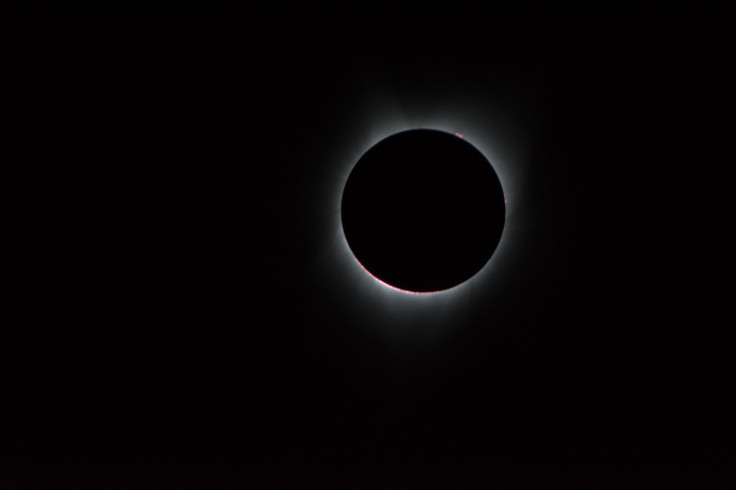Felt Superhuman Night Vision Power During Total Solar Eclipse? Scientists Explain Why

The total solar eclipse on Aug. 21 was an awe-inspiring sight for everyone in North America. People from Lincoln Beach, Oregon to Charleston, and South Carolina could view the total solar eclipse in its entirety. The corona or the complete halo-like ring of the sun around the moon was visible in this belt.
Solar glasses with filters flooded the markets to provide a safe experience to the people in the United States. The temporary darkness during an eclipse tends to diminish the natural reflex of squinting, suddenly increasing the amount of UV on the eyes. With these glasses, however, people could stare at the awesome celestial symmetry.
However, despite the temporary night-like darkness, people were able to see with greater clarity. Scientists at The Ohio State University have figured out a possible biological explanation to this surprising "night vision."
The reason for this sudden X-men mutant school worthy power people could have been a protein called the GABA receptor, according to the researchers. GABA, short for gamma-aminobutyric acid, is a chemical component serving as a messenger between cells in our body, particularly in the brain.
The GABA receptor is present in the retina. It helps us see edges and details of objects better during the daytime. Interestingly, as light reduces, GABA content in the retina also reduces. However, the sudden transition during the eclipse affects this process. Our body is tricked into leaving the GABA in our eyes during the initial part of the eclipse, giving us temporary night vision.
Referring to the findings published in the Current Biology journal, lead researcher Stuart Mangel, a professor of neuroscience at the Ohio State University College of Medicine said a similar effect was found when the study was conducted in rabbits.
The study also concluded that dopamine levels in our body respond to light. Dopamine levels were found to be higher during bright and sunny days leading to higher GABA content in our eyes. Similarly, on a gloomy day or at night, dopamine levels slowly dropped leading to a reduction in GABA levels in the eye.
"It has been known for decades that there is a mechanism in the retina in the eye that helps us see small objects and detect edges on bright days, and that this mechanism gradually turns off when it is dark. However, what this mechanism is and how it is controlled has been a mystery," said Mangel.
The levels of dopamine on warm sunny days are higher leading to higher GABA levels, which ensures a better and sharper vision. During gloomy and dark days, dopamine levels drop and regulate GABA levels. But this is a slow process.
In an article published on the varsity's website, researchers underline a temporary sharper vision was observed among people right after the complete eclipse occurred and the scientists suspect this could have been a widespread phenomenon.
"During the total eclipse, it was as dark as it usually is at dusk. Several people, I was with, commented that they could see as well during totality as they could when it had been bright and that their acuity was much better than it usually is when it is dark at dusk," Mangel said.
The scientists realized that vision has to change to adapt to different light. A bright day would require you to see finer details because of increased reflection off objects. Whereas on a dark moonless night, early man would have needed to see dull and dimly lit objects. So increase and decrease in GABA levels will enable this.
According to the authors, change in light triggers the retina into a process that takes hours. The GABA protein receptors are moved to the prominent parts when it's sunny outside to improve sharpness and removes it as light reduces. "The reason our acuity stayed high during the total eclipse is that there wasn't enough time for protein disassembly to take place," he added.
So if you experienced night vision powers right after the eclipse, thank the GABA protein in your eyes.
© Copyright IBTimes 2024. All rights reserved.











